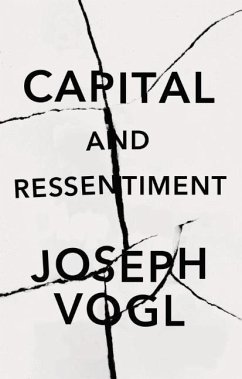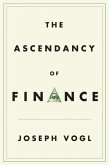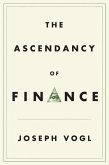The proliferation of social media has provided ideal conditions in which feelings of anger and frustration can be expressed and shared, forming a deep pool of ressentiment that is being drawn upon and exploited by populist and authoritarian leaders.
In his new book, Joseph Vogl shows how this dynamic is rooted in the fusing of finance capital and information in a new form of information capitalism that is reshaping the affective economy of our societies. The capital accumulation strategies of powerful new platforms and social media are pushing people into fragmented, opposing, and conflictual communities where ressentiment is nurtured and grows. The feelings of grievance and rejection generated by capitalism are redirected into attacks on migrants, foreigners, and others, thereby deflecting their critical potential, and bolstering the system that is their source. It is the cunning of ressentiment that provides the key to understanding why, despite the profusion of communication in our social media age, global finance and information capital can be neither understood nor attacked as a totalizing power.
This brilliant analysis of the ways in which information capitalism is transforming the affective economy of our societies will be of great interest to anyone concerned with the forces that are shaping our societies today.
Hinweis: Dieser Artikel kann nur an eine deutsche Lieferadresse ausgeliefert werden.
In his new book, Joseph Vogl shows how this dynamic is rooted in the fusing of finance capital and information in a new form of information capitalism that is reshaping the affective economy of our societies. The capital accumulation strategies of powerful new platforms and social media are pushing people into fragmented, opposing, and conflictual communities where ressentiment is nurtured and grows. The feelings of grievance and rejection generated by capitalism are redirected into attacks on migrants, foreigners, and others, thereby deflecting their critical potential, and bolstering the system that is their source. It is the cunning of ressentiment that provides the key to understanding why, despite the profusion of communication in our social media age, global finance and information capital can be neither understood nor attacked as a totalizing power.
This brilliant analysis of the ways in which information capitalism is transforming the affective economy of our societies will be of great interest to anyone concerned with the forces that are shaping our societies today.
Hinweis: Dieser Artikel kann nur an eine deutsche Lieferadresse ausgeliefert werden.
"This is an exciting exploration of the logic of information capitalism as the economics of information and finance merge and give rise to a new economization of governance and social control."
Wolfgang Streeck, Max Planck Institute for the Study of Societies, Cologne
"How the hell did we arrive at the dire predicament we are in? I can think of no other book that would provide such a succinct and lucid answer, taking into account the intertwining complexities of the last decades. It's like a perfect horror story, describing a reality surpassing any fiction, the one we happen to be living in."
Mladen Dolar, University of Ljubljana
"Capital and Ressentiment offers a thorough and complex approach to some of the most prescient issues of our contemporary condition. It displays a remarkable command of different bodies of literature, put together in an innovative manner that manages to connect seemingly disparate phenomena."
Journal of Cultural Economy
Wolfgang Streeck, Max Planck Institute for the Study of Societies, Cologne
"How the hell did we arrive at the dire predicament we are in? I can think of no other book that would provide such a succinct and lucid answer, taking into account the intertwining complexities of the last decades. It's like a perfect horror story, describing a reality surpassing any fiction, the one we happen to be living in."
Mladen Dolar, University of Ljubljana
"Capital and Ressentiment offers a thorough and complex approach to some of the most prescient issues of our contemporary condition. It displays a remarkable command of different bodies of literature, put together in an innovative manner that manages to connect seemingly disparate phenomena."
Journal of Cultural Economy








